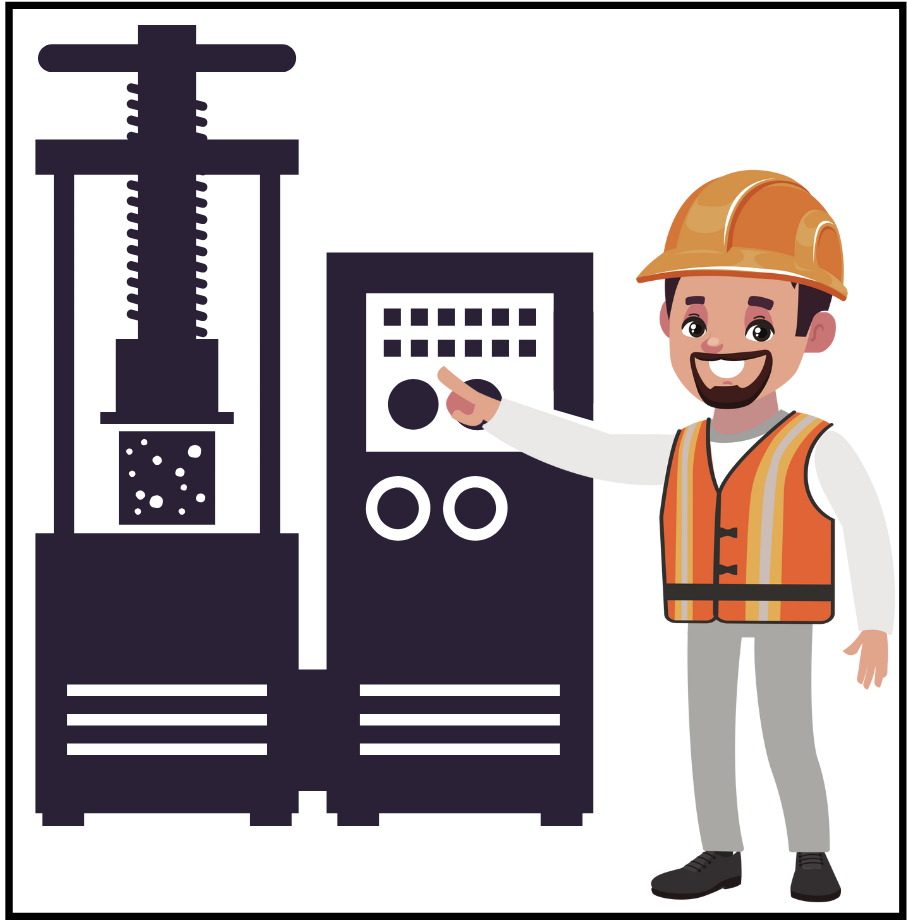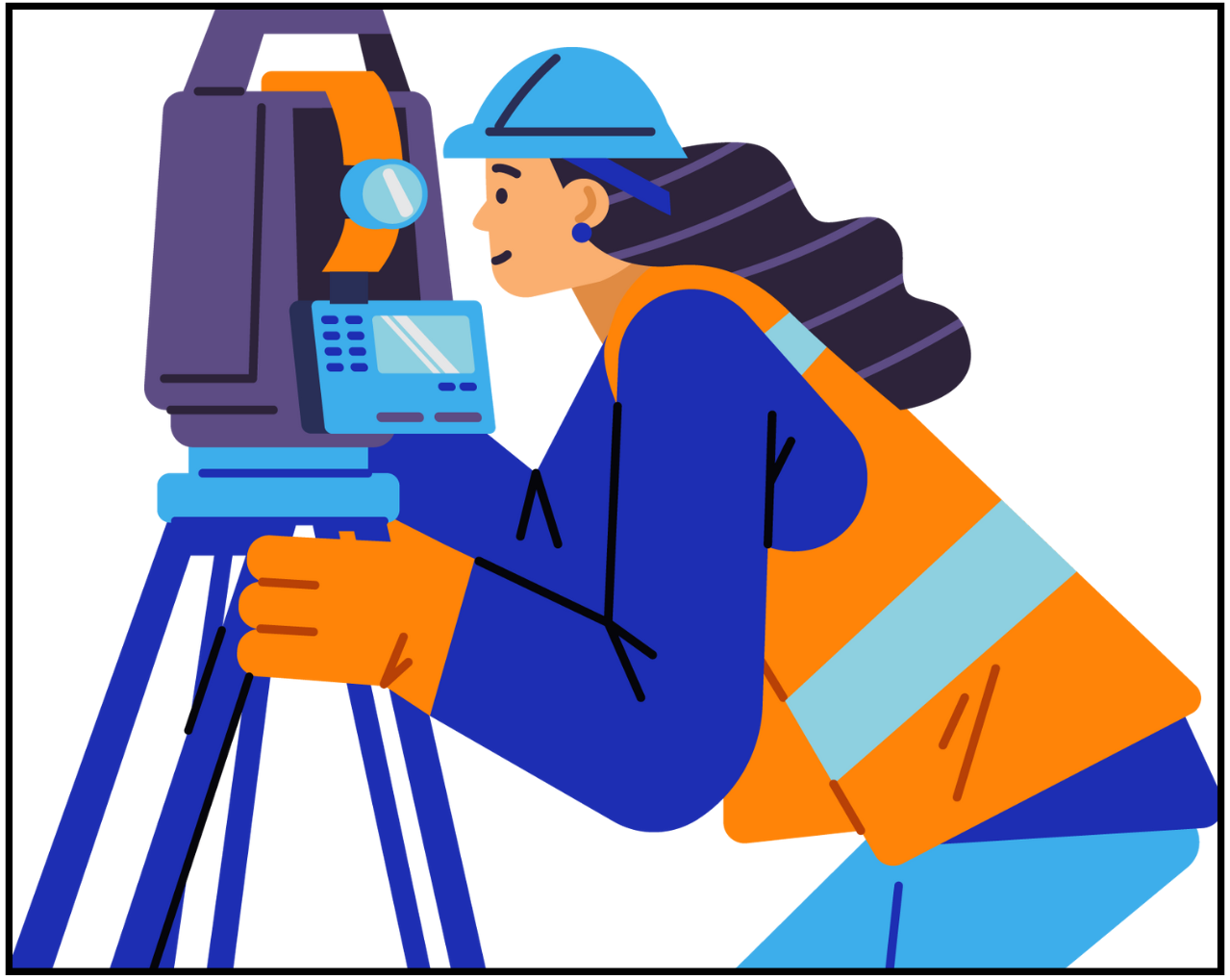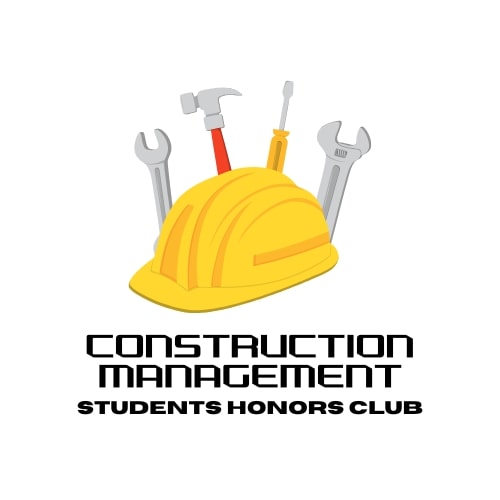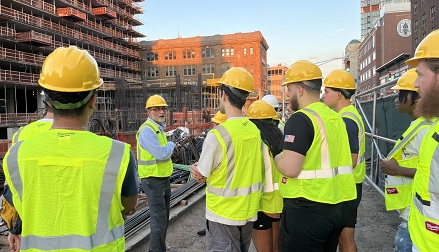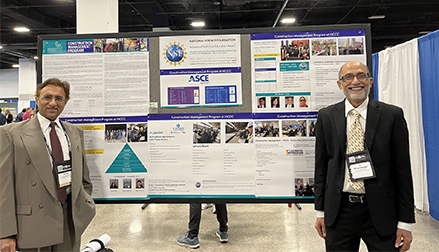
Center for Construction Management
Gateway to Great Careers in Construction Industry.
HCCC Provides an Affordable Learning Experience.

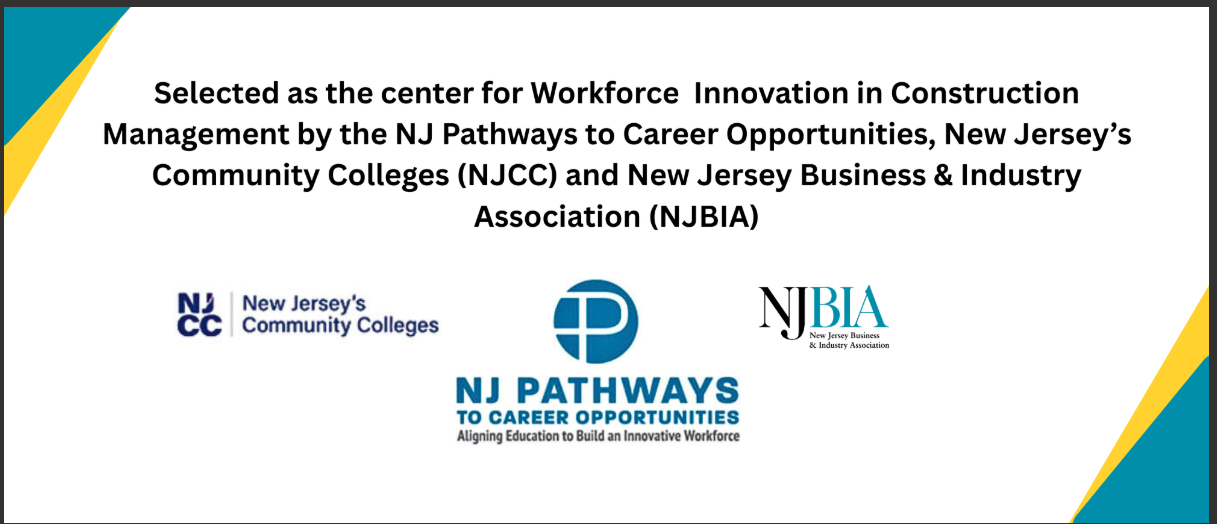
2-year (60 Credit) program in Construction Management. It is designed for all those students who are interested in pursuing a 4-year bachelor’s degree in civil engineering or construction management. An A.A.S. in Construction Management can get them into the job market; and while working, they can continue either full-time or part-time to pursue their undergraduate degrees. All students who opt for an undergraduate degree receive credit for their coursework in an associate program.
1-year (34 Credit) certificate program in construction management. For those students who need to enter the workforce quickly, this program is a great opportunity to begin their careers. All the coursework of the certificate program is transferable to the A.A.S. in construction management degree.
Proficiency Certificates
The proficiency certificate in Construction Administration is a 6-month (16 credits) certificate program designed to prepare students for careers in the construction industry. The program includes courses specific to construction that include construction administration.
The proficiency certificate in Construction Technology is a 6-month (16 credits) certificate program designed to prepare students for careers in the construction industry. The program includes courses specific to construction that include technical skills.
Stackable Credit Certificates
"All students who successfully complete CNM 201 – Introduction to Basic Structures course will receive this certificate."
The Engineering Structural Analysis and Design Certificate program provides a comprehensive foundation in structural analysis and design for buildings, bridges, and various other structures. This program blends theoretical knowledge with practical application, preparing students for careers in structural engineering and related fields.
Key Focus Areas:
- Fundamentals of Structural Analysis: Master core principles such as equilibrium, forces, moments, and load distributions to understand how materials respond to different loads.
- Hands-On Design Exercises: Apply theoretical concepts through practical design tasks, simulating real-world engineering scenarios.
- Case Studies: Examine real-world structures to evaluate design decisions, construction techniques, and performance outcomes.
- Model Load Testing: Participate in load testing exercises to observe how structures behave under various loading conditions.
- Material Proficiency: Develop expertise in designing with timber, masonry, steel, and concrete, with a focus on understanding their distinct properties and best-use practices.
- Sustainable Design Practices: Learn to assess the environmental impact of construction projects and implement sustainable solutions in structural design.
Learning Outcomes
Upon completion, students will:
- Have a strong grasp of structural design principles and their practical applications.
- Be proficient in working with various construction materials, including timber, masonry, steel, and concrete.
- Understand and integrate sustainable design practices into structural projects.
Career Opportunities
A Certificate in Engineering Structural Analysis and Design opens up various career opportunities, particularly in construction, civil engineering,
and related fields. Here’s a breakdown of potential career paths:
- Entry-Level Positions
- Structural Engineering Technician: Assisting engineers in designing and drafting structural plans.
- CAD/BIM Technician: Using software like AutoCAD, Revit, or Tekla to create detailed structural models.
- Construction Inspector: Ensuring structural integrity during the construction process.
- Junior Structural Analyst: Conducting preliminary structural analysis and simulations.
- Advanced Roles (with Experience or Further Education)
- Structural Engineer: Designing and analyzing buildings, bridges, and other infrastructure.
- Project Manager: Overseeing structural projects from planning to completion.
- Construction Manager: Managing construction teams, ensuring safety and design compliance.
- Civil Engineer (with focus on structures): Designing and managing public infrastructure projects.
Dr. Azhar Mahmood
Coordinator: Construction Management Program at HCCC
Principal Investigator: NSF Grant (Award ID # 2055313): Strengthening Community College and Workforce Partnerships in Construction Management
(2021 – 2025)
263 Academy Street, Room S605C
Jersey City, NJ 07306
(201) 360-4259
amahmoodFREEHUDSONCOUNTYCOMMUNITYCOLLEGE
"All students who successfully complete CNM 205 – Surveying and Site Planning course will receive this certificate."
This certificate program provides students with a comprehensive understanding of site development, from site selection and analysis to planning, design, and the approval process. Students will gain foundational knowledge in construction surveying, project layout, and the operation of advanced surveying equipment.
Key Focus Areas
- The role of surveying across various disciplines
- Measurement techniques with a focus on accuracy and precision
- Leveling methods and best practices
- Distance, elevation, angle, bearing, and azimuth measurement using leveling instruments and transits
- Traverse surveying and related computations
- Basic topography and mapping principles
Learning Outcomes
Upon successful completion of this certificate, students will be able to:
- Conduct accurate land surveys using modern surveying equipment and techniques.
- Analyze site conditions and apply principles of site selection and planning.
- Perform traverse and as-built surveys, documenting site data with precision.
- Collaborate effectively in teams to plan and execute construction site surveys.
- Interpret and create topographical maps for construction projects.
Practical Experience
Students will participate in hands-on laboratory and fieldwork activities, including
a site visit to a nearby construction project to observe real-world site planning
and surveying procedures. They will also collaborate on a team project that walks
through the complete site planning process, culminating in the execution of two types
of construction surveys: a traverse survey and an as-built survey.
Career Preparation
This certificate prepares students for entry-level roles in the construction and land
surveying industries, such as:
- Surveying Technician – Assisting licensed surveyors with data collection and analysis.
- Construction Site Planner – Contributing to site layout and design processes.
- Field Survey Assistant – Supporting on-site surveying tasks for construction projects.
The skills gained through this program can also serve as a foundation for further studies in civil engineering, construction management, or geospatial sciences.
Dr. Azhar Mahmood
Coordinator: Construction Management Program at HCCC
Principal Investigator: NSF Grant (Award ID # 2055313): Strengthening Community College and Workforce Partnerships in Construction Management
(2021 – 2025)
263 Academy Street, Room S605C
Jersey City, NJ 07306
(201) 360-4259
amahmoodFREEHUDSONCOUNTYCOMMUNITYCOLLEGE
"All students who successfully complete CNM 222 – Construction Project Management course will receive this certificate."
This certificate program equips students with a comprehensive understanding of the processes, techniques, and best practices essential for managing construction projects from inception to completion. The curriculum emphasizes both theoretical knowledge and hands-on applications in real-world construction scenarios.
Key Focus Areas Include:
- Cost Control: Mastering budgeting and financial management to optimize project resources.
- Effective Scheduling: Developing advanced time management skills to ensure on-time project delivery.
- Risk Assessment: Identifying, evaluating, and mitigating potential project risks.
- Delay Analysis: Implementing strategies to analyze and address project delays efficiently.
Students will also gain expertise in navigating crucial administrative procedures and understanding regulatory requirements, ensuring projects meet industry standards and legal compliance.
A strong emphasis is placed on:
- Safety Regulations: Promoting a safe and secure work environment through adherence to safety standards.
- Labor Relations: Building effective communication and fostering positive relationships with stakeholders, including labor unions and contractors.
- Record-Keeping: Maintaining accurate documentation for compliance, project tracking, and reporting.
Career Preparation
This program prepares students for a range of roles in the construction industry,
including:
- Construction Project Manager
- Cost Estimator
- Scheduling Coordinator
- Risk Manager
- Safety Officer
- Construction Administrator
By completing the certificate, students will enhance their professional readiness, equipping them with the skills and knowledge required to make meaningful contributions to any construction project. This certification will also help students gain a competitive edge in the workforce and take the next step in their career advancement.
Dr. Azhar Mahmood
Coordinator: Construction Management Program at HCCC
Principal Investigator: NSF Grant (Award ID # 2055313): Strengthening Community College and Workforce Partnerships in Construction Management
(2021 – 2025)
263 Academy Street, Room S605C
Jersey City, NJ 07306
(201) 360-4259
amahmoodFREEHUDSONCOUNTYCOMMUNITYCOLLEGE
"All students who successfully complete CNM 225 – Cost Estimation course will receive this certificate."
This certificate program equips students with a strong foundation in managing project costs within the construction industry.
Key Focus Areas
- Interpreting Construction Blueprints:
- Essential skill for accurate cost estimation.
- Cost Estimation Techniques:
- Unit pricing
- Parametric estimating
- Analogous estimating
- Exploration of methodologies such as:
Curriculum Highlights
- Project Lifecycle Management:
- Importance of cost control and budget adherence at all project stages.
- Cash Flow Management:
- Techniques for effective financial monitoring.
- Practical Exercises:
- Hands-on experience with break-even analyses for construction tasks.
Learning Outcomes
- Critical Thinking and Problem-Solving:
- Application of knowledge through case studies and industry scenarios.
- Real-World Application:
- Skills to address real-world challenges in the construction field.
Career Preparation
Students with a Certificate in Quantity Surveying and Construction Cost Estimation can pursue careers in:
- Quantity Surveyor – Cost management, tendering, contract administration.
- Cost Estimator – Project budgeting, cost analysis, bid preparation.
- Cost Consultant – Advising on budgets, value engineering, lifecycle costing.
- Project Coordinator – Budgeting, scheduling, resource allocation.
- Procurement Specialist – Sourcing materials, contract negotiations.
- Site Manager – On-site budget management, cost control.
- Contract Administrator – Managing contracts, handling claims.
- BIM Cost Specialist – Integrating cost data into BIM models.
- Claims Consultant – Contractual disputes, claim preparation.
- Freelance Estimator – Independent cost consultancy services.
These roles can lead to senior positions like Project Manager or Commercial Manager with experience.
Dr. Azhar Mahmood
Coordinator: Construction Management Program at HCCC
Principal Investigator: NSF Grant (Award ID # 2055313): Strengthening Community College and Workforce Partnerships in Construction Management
(2021 – 2025)
263 Academy Street, Room S605C
Jersey City, NJ 07306
(201) 360-4259
amahmoodFREEHUDSONCOUNTYCOMMUNITYCOLLEGE
"All students who successfully complete CNM 120 – Introduction to Engineering Science & Calculations course will receive this certificate."
This certificate program is designed for students aspiring to careers in Construction Management or Civil Engineering. It offers comprehensive instruction in the scientific and mathematical principles vital to these fields.
Key Components
- Mathematical Proficiency:
- Geometry
- Algebra
- Statistics
- Calculus
- Engage in key calculations for construction and project management, including:
- Develop skills for effective planning, budgeting, and resource allocation.
- Fundamental Physics:
- Forces
- Energy
- Material properties
- Learn the physical laws governing structures and materials, focusing on:
- Apply these concepts to real-world engineering challenges.
Skill Development
- Critical Thinking and Problem-Solving:
- Analyze complex situations and make informed decisions in engineering contexts.
- Hands-On Experience:
- Combine theoretical knowledge with practical applications to prepare for industry challenges.
Career Opportunities
Graduates will have a well-rounded skill set that enhances employability, preparing
them for:
- Further studies in Construction Management or Civil Engineering.
- Immediate entry into the workforce, contributing to projects that shape our infrastructure and communities.
Dr. Azhar Mahmood
Coordinator: Construction Management Program at HCCC
Principal Investigator: NSF Grant (Award ID # 2055313): Strengthening Community College and Workforce Partnerships in Construction Management
(2021 – 2025)
263 Academy Street, Room S605C
Jersey City, NJ 07306
(201) 360-4259
amahmoodFREEHUDSONCOUNTYCOMMUNITYCOLLEGE
"All students who successfully complete CNM 202 – Construction Procedures, Material and Testing course will receive this certificate."
The certificate explores various construction systems, material stresses, and foundational engineering concepts.
Key Components:
- Introduction to Construction Materials:
- Overview of materials commonly used in construction.
- Techniques for blueprint reading essential for building projects.
- Hands-On Experience:
- Demonstrations and lab experiments.
- Practical exercises to gain experience in construction methods.
Emphasis on Structural Systems:
- Key Areas of Focus:
- Structural steel
- Masonry
- Wood
- Reinforced concrete
- Hybrid structural systems
- Learning Outcomes:
- Comprehensive understanding of the construction process using diverse materials.
- Knowledge of underlying engineering principles and mathematical relationships.
Plant Operations:
- Focus on Production Balance:
- Understanding the relationship between production rates (e.g., asphalt and concrete plants) and installation pace on-site.
- Importance of Synchronization:
- Grasping the significance of synchronizing material supply with project timelines for efficient project management.
Career Opportunities
The course prepares students for various roles in the construction and engineering industries,
including:
- Project Manager – Oversee projects, ensuring proper methods and materials.
- Estimator – Calculate costs, materials, and labor.
- Materials Tester/Technician – Test materials for safety and quality.
- Quality Control Specialist – Ensure compliance with standards.
- Site Supervisor/Foreman – Manage site operations and testing.
- Building Inspector – Verify code and safety compliance.
- Civil Engineering Technician – Support engineers with materials testing.
- Safety Officer – Enforce health and safety regulations.
- Green Building Consultant – Advise on sustainable materials.
- Contractor/Subcontractor – Lead specialized construction projects.
Dr. Azhar Mahmood
Coordinator: Construction Management Program at HCCC
Principal Investigator: NSF Grant (Award ID # 2055313): Strengthening Community College and Workforce Partnerships in Construction Management
(2021 – 2025)
263 Academy Street, Room S605C
Jersey City, NJ 07306
(201) 360-4259
amahmoodFREEHUDSONCOUNTYCOMMUNITYCOLLEGE
"All students who successfully complete CNM 220 – Construction Codes course will receive this certificate."
This certificate equips students with a theoretical understanding of methodologies used to examine both new and existing structures, ensuring compliance with building codes and safety regulations.
- Key Learning Outcomes:
- Structural integrity
- Safety compliance
- Adherence to standards
- Assess construction aspects:
Course Introduction
The course introduces the fundamentals of building inspection, covering essential
knowledge about:
- Construction Codes: Importance and overview of regulations
- Documentation: Significance of thorough documentation
- Industry Practices: Established protocols and standards
Topics Covered
Students will explore:
- Types of building inspections
- Role of inspectors in construction
- Protocols for reporting and addressing non-compliance
Course Outcomes
By the end of the course, students will be able to:
- Navigate the building inspection field
- Understand inspection processes
- Recognize the role of inspections in ensuring public safety and structural reliability
Career Opportunities
A course in Building Codes and Compliance opens up a range of career opportunities in industries that require knowledge of
construction regulations, safety standards, and compliance management. Here are some
potential career paths:
- Building Inspector – Inspect sites for code adherence.
- Code Enforcement Officer – Enforce zoning and building regulations.
- Construction Manager – Oversee projects for safety and compliance.
- Safety Specialist – Ensure workplace safety standards.
- Permit Coordinator – Handle building permits.
- Plan Reviewer – Check plans for code compliance.
- Fire Code Specialist – Ensure fire safety regulation adherence.
- Environmental Compliance Specialist – Manage environmental law compliance.
- Real Estate Consultant – Advise on regulatory risks.
- Code Trainer/Consultant – Provide compliance training.
Dr. Azhar Mahmood
Coordinator: Construction Management Program at HCCC
Principal Investigator: NSF Grant (Award ID # 2055313): Strengthening Community College and Workforce Partnerships in Construction Management
(2021 – 2025)
263 Academy Street, Room S605C
Jersey City, NJ 07306
(201) 360-4259
amahmoodFREEHUDSONCOUNTYCOMMUNITYCOLLEGE
"All students who successfully complete CNM 230 – Construction Project Planning and Control course will receive this certificate."
This certificate introduces students to the principles of project planning in the construction industry, combining theoretical knowledge with practical application.
Key Learning Objectives
- Project Analysis:
- Evaluate alternative designs and construction plans, focusing on contracting methods and design management.
- Contract Proposal Development:
- Craft detailed contract proposals, identify core issues, and develop mitigation strategies.
- Scheduling and Planning:
- Prepare master plan schedules and understand tendering procedures to facilitate the bidding process.
- Cost Management:
- Perform contractor cost calculations, develop competitive bids, and manage project budgets effectively.
- Project Management Skills:
- Learn to manage production activities and employ project controls to monitor and assess project performance.
- Software Proficiency:
- Gain basic proficiency in industry-standard software essential for project management.
Capstone Project
Students will apply the concepts learned in lectures during hands-on lab sessions
as part of a capstone project. This project will culminate in a presentation that
showcases their understanding and application of project planning principles.
Career Opportunities
Students taking a course in Project Planning and Control for Construction can look forward to various career opportunities in the construction and infrastructure
industries. Here are some key roles they can pursue:
- Project Management
- Project Manager/Assistant Project Manager: Oversee and coordinate construction projects.
- Planning & Scheduling
- Scheduler/Planner: Develop and manage project timelines.
- Planning Engineer: Allocate resources and analyze risks.
- Quality & Risk Management
- Quality Manager: Ensure construction standards are met.
- Risk Manager: Identify and mitigate project risks.
- Contracts & Procurement
- Contracts Manager: Handle contracts and compliance.
- Procurement Specialist: Source materials and services.
- BIM & Technology
- BIM Coordinator: Integrate BIM in project planning.
- Construction Tech Specialist: Implement tech solutions.
- Consultancy & Teaching
- Construction Consultant: Provide planning and control expertise.
- Instructor/Researcher: Teach or research in construction management.
Dr. Azhar Mahmood
Coordinator: Construction Management Program at HCCC
Principal Investigator: NSF Grant (Award ID # 2055313): Strengthening Community College and Workforce Partnerships in Construction Management
(2021 – 2025)
263 Academy Street, Room S605C
Jersey City, NJ 07306
(201) 360-4259
amahmoodFREEHUDSONCOUNTYCOMMUNITYCOLLEGE
Micro Credit Electives
As part of the ongoing NSF Grant initiatives, micro-credit electives are being developed to provide students with opportunities to diversify their educational portfolio and enhance their job prospects. These targeted, skill-based courses are designed to offer exposure to various specialized areas within the construction industry, enabling students to gain practical knowledge and broaden their career pathways. Once approved through the institutional review process, these micro-credit electives will be available for students to fulfill their elective requirements, further strengthening the program’s alignment with industry needs and workforce readiness.
Water Resources
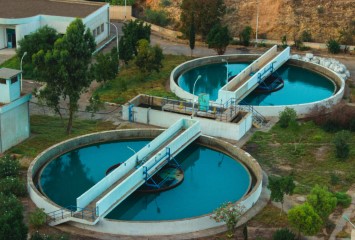
- Drinking Water Treatment
- Waste Water Treatment (Municipal)
- Water Main Installation
Forensic Engineering

- Introduction to Forensic Engineering
Marine Construction

- Introduction to Marine Construction
Engineering Software

- Primavera (Project Management and Scheduling)
- Procore (Construction Management)
- Revit (BIM)
- Viso (Drawing Tool)
Transportation and Traffic Control
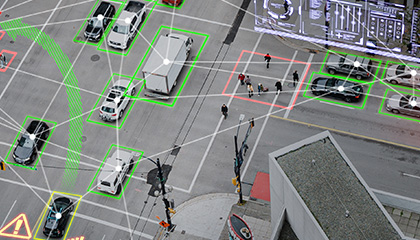
- Fundamental of Manual of Uniform Traffic Control Devices (MUTCD)
- Fundamentals of Signing and Stripping
- Fundamentals of Traffic Engineering
- Introduction to Intelligent Transportation Systems
- Introduction to Traffic Diversion Study
- Traffic Control Coordinator
- Transportation Impact Analysis (TIA)
Geographic Information Systems
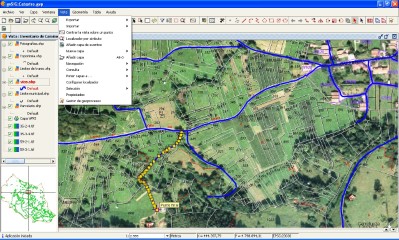
- Introduction to GIS
Construction Management Lab
BPI Certification (Training and Testing Center)
The Building Science Principles (BSP) Certificate of Knowledge provides foundational insight into how various components of a home interact to influence its overall performance. This certification marks the beginning of your journey into energy-efficient home performance. Enhancing a home's energy efficiency is a crucial step toward integrating solar, geothermal, or other renewable energy technologies.
Building science explores how different home components—such as the building envelope, heating and cooling systems, insulation, mechanical ventilation, lighting, and appliances—work together to impact the home's performance. By understanding these interactions, you can better assist yourself and others in optimizing comfort, health, safety, and durability within the home.
Registration link coming soon.
Contact Information
Dr. Azhar Mahmood
Coordinator
263 Academy Street, Room S605C
Jersey City, NJ 07306
(201) 360-4259
amahmoodFREEHUDSONCOUNTYCOMMUNITYCOLLEGE
The BPI Building Analyst Technician (BA-T) certification is an early-career credential for workers in the home performance industry. This certification gives a great entrance to the industry while providing a clear path for professional growth.
A BA-T's work includes data collection and diagnostic testing for a whole-home assessments. The BA-T's skills and knowledge include: buildings & their systems, testing & data collection, and industry standards.
The BA-T is earned by passing a field test with oral questions. BPI's Building Science Principles Certificate of Knowledge (BSP) is a prerequisite for the BA-T certification exam.
Registration link coming soon.
Contact Information
Dr. Azhar Mahmood
Coordinator
263 Academy Street, Room S605C
Jersey City, NJ 07306
(201) 360-4259
amahmoodFREEHUDSONCOUNTYCOMMUNITYCOLLEGE
The BPI Building Analyst Professional (BA-P) is an advanced certification for home performance professionals. A BA-P is a certified Building Analyst Technician who also conducts energy modeling, building analysis, and data evaluation in order to provide a comprehensive report with a list of prioritized home performance recommendations.
The BA-P certification is earned by passing an online written exam. An active Building Analyst Technician (BA-T) certification is required for BA-Ps.
BPI considers the BA-T and BA-P upgrades to be a continuation of the Building Analyst
certification. The BPI Building Analyst and HEP Energy Auditor are listed as example
certifications in the State-Based Home Energy Efficiency Contractor Training Grants
Program Administrative and Legal Requirements Document.
Additionally, the BPI Building Analyst Professional and HEP Energy Auditor are recognized
by DOE as credentials that taxpayers can use to claim the Energy Efficient Home Improvement
Credit (Section 25C), and contractors can use to qualify for the Contractor Training
Grant Program administered by the State Energy Offices.
The U.S. Department of Energy has recognized BPI's Building Analyst Professional certification
as Energy Skilled in the Single Family Home Energy Audit category.
Registration link coming soon.
Contact Information
Dr. Azhar Mahmood
Coordinator
263 Academy Street, Room S605C
Jersey City, NJ 07306
(201) 360-4259
amahmoodFREEHUDSONCOUNTYCOMMUNITYCOLLEGE
IDL Certification is an essential entry-level qualification for anyone aspiring to become an energy auditor. In the energy auditing and HVAC industries, there's a growing demand for professionals who can operate blower doors and duct blasters in residential settings. Earning the BPI IDL Certification equips you with the skills to handle this specialized equipment, enhancing your marketability in the field.
This certification is designed for individuals who wish to perform building air leakage and duct tightness testing to meet energy code requirements or other performance standards. Professionals who would benefit from this certification include:
- HVAC Technicians
- Builders
- Code Officials
- BPI Energy Auditors/RESNET HERS Raters
- Building/Home Inspectors
- Insulators
Registration link coming soon.
Contact Information
Dr. Azhar Mahmood
Coordinator
263 Academy Street, Room S605C
Jersey City, NJ 07306
(201) 360-4259
amahmoodFREEHUDSONCOUNTYCOMMUNITYCOLLEGE
The Home Energy Professional (HEP) Energy Auditor certification is offered by BPI, and is supported by the U.S. Department of Energy (DOE) and its National Renewable Energy Laboratory (NREL).
The HEP Energy Auditor certification demonstrates advanced competency through rigorous online and field exams, and work experience prerequisites.
Once certified, you will be able to evaluate the energy efficiency, health, and safety of a home. You will gain in-depth knowledge of how to use diagnostic equipment and modeling software to identify areas for energy savings, produce an audit report, and develop a prioritized scope of work for your customer.
The HEP Energy Auditor is listed as an example certification in the State-Based Home
Energy Efficiency Contractor Training Grants Program Administrative and Legal Requirements
Document. Additionally, HEP Energy Auditor is recognized by DOE as a credential that
taxpayers can use to claim the Energy Efficient Home Improvement Credit (Section 25C),
and contractors can use to qualify for the Contractor Training Grant Program administered
by the State Energy Offices.
The U.S. Department of Energy has recognized BPI's Building Analyst Professional certification
as Energy Skilled in the Single Family Home Energy Audit category.
Bonus: When you have earned the Energy Auditor certification, BPI will also grant the Building Analyst Technician (BA-T) and Building Analyst Professional (BA-P) certifications for an administrative fee.
Registration link coming soon.
Contact Information
Dr. Azhar Mahmood
Coordinator
263 Academy Street, Room S605C
Jersey City, NJ 07306
(201) 360-4259
amahmoodFREEHUDSONCOUNTYCOMMUNITYCOLLEGE
NICET Certification
- NICET Highway Construction Inspection Level I is an entry-level certification designed for individuals starting their careers in highway construction inspection. It demonstrates foundational knowledge in monitoring, documenting, and reporting construction activities according to relevant industry standards. The certification ensures that inspectors have the essential skills to assist in the construction and inspection of highways, bridges, and related infrastructure projects.
- NICET Highway Construction Inspection Level II is an intermediate certification designed for individuals with some experience in highway construction inspection. This level signifies that the inspector possesses practical knowledge, can work more independently, and performs inspections with limited supervision. It builds upon the foundational skills acquired in Level I and prepares individuals for more responsibility in ensuring that highway construction projects meet specifications and regulatory standards.
- NICET Highway Construction Inspection Level III is an advanced certification that demonstrates expertise in highway construction inspection. Level III inspectors are expected to have significant field experience and technical knowledge to manage complex inspection tasks. They often supervise other inspectors, act as project leads, and ensure that all work meets regulatory, safety, and quality standards. This level focuses heavily on independent decision-making and project coordination.
- NICET Highway Construction Inspection Level IV is the highest certification level offered by the National Institute for Certification in Engineering Technologies (NICET) for highway construction inspection professionals. This level is designed for experts with extensive experience, technical mastery, and leadership skills. Level IV inspectors take on strategic oversight, ensuring that complex infrastructure projects meet all contractual, regulatory, and quality standards. They are often involved in high-level project management, supervising multiple teams, and liaising with government agencies and contractors.
- NICET Construction Materials Testing (CMT) – Soils Level I is an entry-level certification for technicians responsible for performing basic soil sampling, testing, and inspection tasks in construction projects. This certification ensures that individuals have foundational knowledge and skills required to support quality assurance efforts in earthwork and soil-related construction activities.
- NICET Construction Materials Testing (CMT) – Soils Level II certification is designed for technicians who have intermediate knowledge and experience in soil testing and quality control. Individuals at this level are expected to perform tests independently and ensure compliance with engineering standards for earthwork projects. Level II builds on the foundational knowledge from Level I but focuses more on independent field operations, problem-solving, and reporting
For NICET Certification Preparatory courses, please visit Construction Management Certifications.
Small Business Development Center
Construction Industry Workshop for High School Students
For more information about the upcoming workshop please contact the Construction Management AAS Coordinator, Dr. Azhar Mahmood at amahmoodFREEHUDSONCOUNTYCOMMUNITYCOLLEGE or 201-360-4259.
Construction Industry Workshop for High School Students:
Anselmi Scholarships






Students interested in applying for the Anselmi Scholarship should contact the Construction
Management Program Coordinator, Dr. Azhar Mahmood, at amahmoodFREEHUDSONCOUNTYCOMMUNITYCOLLEGE.
For additional information, please visit:
CIAP
Field Trips and Past Events
Hudson Headliners - Construction Management
February 2025
In our newest episode of "Hudson Headliners," you'll learn about our Construction
Management academic offerings as well as networking and internship opportunities.
The Hudson County Community College Center for Construction Management offers nationally
recognized and industry-recognized degree and certificate studies to meet the specific
career goals of recent high school graduates, seasoned construction workers, and those
transitioning into the industry.
Faculty Members |
| Rabab Afreen, MS (FE) (EIT) NCEES |
| Ahmad Alhalwani, Ph.D., PMP, PE |
| Ehab A. Azmy, RA, LEED AP |
| Raymond D. El-Khoury, Ph.D., PE |
| Khursheed A. Khan, MS, PE |
| Shahida Manzoor, MS, PE |
| Cesar B. Otavalo – B.Sc. (Geology) | Certified Survey Technician | FAA Certified Remote Pilot |
| Sajid Riaz, BE, PE |
| Shameem Ashraf Syed, MS, NCEES EIT (FE), E-BCP |
| Mazher Usmani MS, PE |
| Christine Wacta – Architect D.P.L.G. | Ph.D. |
Contact Information
Dr. Azhar Mahmood
Coordinator: Construction Management Program at HCCC
Principal Investigator: NSF Grant (Award ID # 2055313): Strengthening Community College and Workforce Partnerships in Construction Management
(2021 – 2025)
263 Academy Street, Room S605C
Jersey City, NJ 07306
(201) 360-4259
amahmoodFREEHUDSONCOUNTYCOMMUNITYCOLLEGE
School of Science, Technology, Engineering and Mathematics
263 Academy Street, Room S204
Jersey City, NJ 07306
(201) 360-4265
stemprogramsFREEHUDSONCOUNTYCOMMUNITYCOLLEGE





